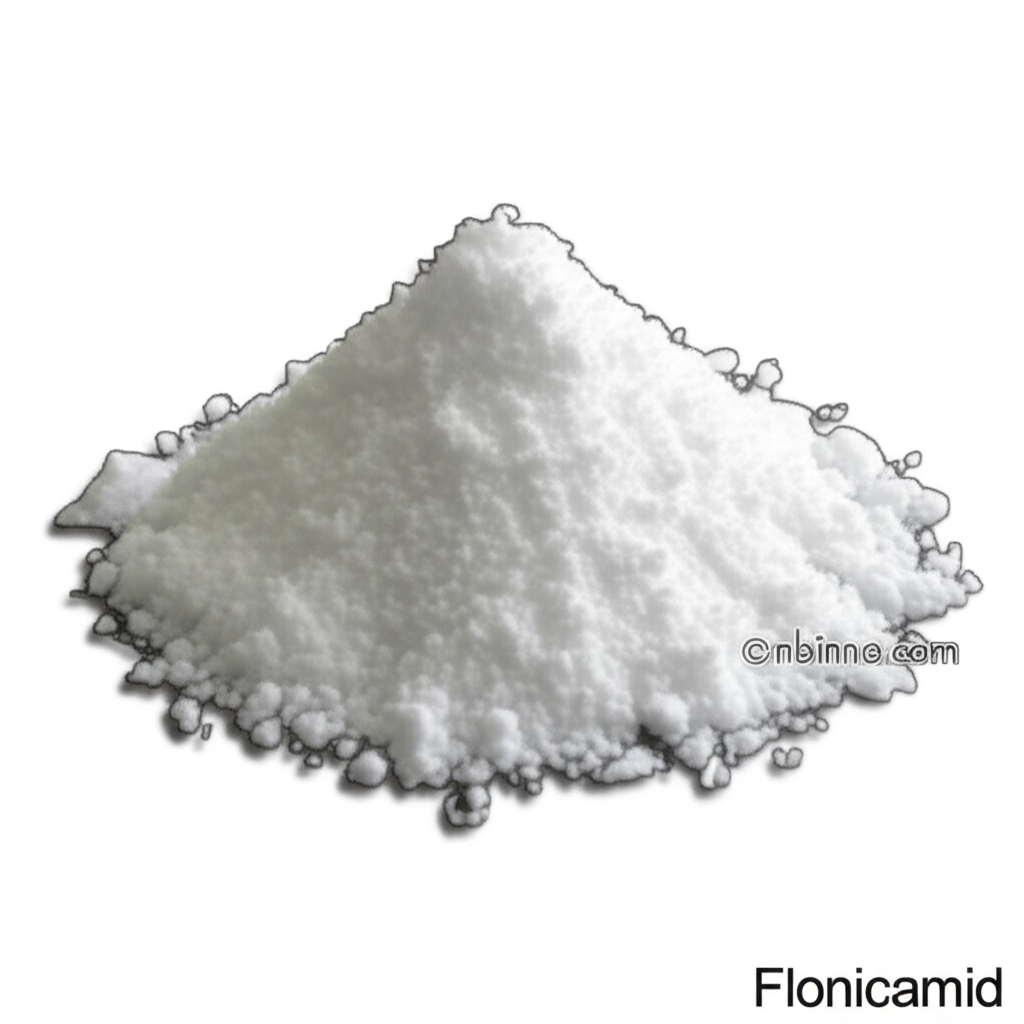Flonicamid: Advanced Insecticide for Sucking Pests
Safeguard your crops with cutting-edge insect control: N-(Cyanomethyl)-4-(trifluoromethyl)pyridine-3-carboxamide.
Get a Quote & SampleProduct Core Value

Flonicamid
Flonicamid is a highly effective pyridine organic compound insecticide designed to combat a wide range of sucking pests, including aphids, whiteflies, and thrips. Its unique mode of action targets chordotonal organs, critical for insect balance and movement, leading to rapid feeding cessation. This advanced formulation offers systemic and translaminar properties, providing excellent residual control for up to three weeks, making it a valuable tool for integrated pest management (IPM) programs.
- This insecticide targets sucking pests, offering significant control against aphids and whiteflies, crucial for crop health.
- The systemic and translaminar action of Flonicamid ensures comprehensive protection throughout the plant.
- Flonicamid's classification under IRAC Group 29 highlights its unique mode of action, important for resistance management.
- Experience long-lasting residual control of up to three weeks, minimizing the need for frequent applications.
Advantages Offered
Targeted Pest Control
Effectively controls sucking pests like aphids and thrips, minimizing damage to crops and improving yield potential.
Resistance Management
Its unique mode of action helps manage insecticide resistance, making it a key component in sustainable agriculture.
Improved Crop Health
By preventing pest damage, Flonicamid contributes to healthier plants and ultimately, higher quality yields.
Key Applications
Agriculture
Used extensively in agriculture to protect various crops from damaging sucking insects, ensuring better harvests.
Horticulture
Applicable in horticultural settings for the control of pests on ornamental plants and fruits.
Integrated Pest Management (IPM)
Flonicamid's selective action and resistance management properties make it ideal for IPM programs.
Pest Cessation
Its rapid feeding cessation mechanism helps prevent virus transmission and reduces plant damage.
